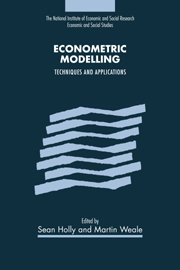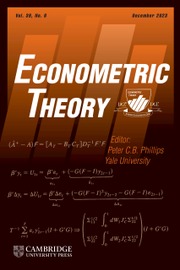Ethics in Econometrics
Applied econometrics uses the tools of theoretical econometrics and real-word data to develop predictive models and assess economic theories. Due to the complex nature of such analysis, various assumptions are often not understood by those people who rely on it. The danger of this is that economic policies can be assessed favourably to suit a particular political agenda and forecasts can be generated to match the needs of a particular customer. Ethics in Econometrics argues that econometricians need to be aware of potential ethical pitfalls when carrying out their analysis and that they need to be encouraged to avoid them. Using a range of empirical examples and detailed discussions of real cases, this book provides a guide for research practices in econometrics, illustrating why it is imperative that econometricians act ethically in terms of the way they conduct their analysis and treat their data.
- Shows that there can be many choices to make, that results are path dependent and that such knowledge is important in research practice
- Most chapters contain various empirical exercises to illustrate the main points
- Data is made available in Excel format allowing for replication by the reader
Reviews & endorsements
‘Having a deeper understanding of econometric tools, their use and misuse, is essential for not making misleading conclusions based on ‘data evidence.' This excellent textbook introduces the reader to spotting some of the pitfalls in econometric and other data analysis.' Niels Haldrup, Aarhus University
‘Philip Hans Franses made a book that is both easy to follow and rigorous. The applications provide students and professionals with emblematic examples for better exploiting econometric methods to extract information from data.' Roberto Golinelli, Department of Economics, University of Bologna
‘Philip Franses' latest book is a unique and indispensable resource for practical econometricians, offering a wealth of knowledge that is both comprehensive and accessible. I am delighted to include this book in my reading list for upper-division undergraduate and master courses in Time Series Econometrics at U. Carlos III de Madrid. It serves as an excellent complement to standard textbooks in Econometrics. Two thumbs up for its exceptional contribution to the field of econometrics.' Jesus Gonzalo, Economics Professor, U. Carlos III de Madrid
Product details
November 2024Hardback
9781009428040
310 pages
235 × 159 × 23 mm
0.58kg
Available
Table of Contents
- Introduction
- 1. Ethical guidelines
- 2. Scientific misconduct
- 3. Influential observations
- 4. Model selection
- 5. Estimation and interpretation
- 6. Missing data
- 7. Spurious relations
- 8. Blinded by the data
- 9. Predictability
- 10. Adjustment of forecasts
- 11. Big data
- 12. Algorithms.






